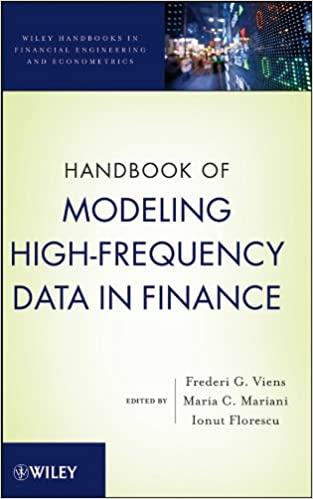Question
Understanding what maturity risk means for bonds is very important. Complete the following table by calculating the new bond prices and then the % price
Understanding what maturity risk means for bonds is very important. Complete the following table by calculating the new bond prices and then the % price change that results for the two bonds given below. For example, in the table if YTMs go up 0.5 percentage points (also known as 50 basis points or bp) on the short-term bond, that means that the YTM would go from 2.5% to 3.0%. Then calculate the new price at a YTM of 3.0% and then calculate the % change in price from today's price of $1000 to the new price. Note that a decrease in bond price will have a negativepercentage change in price (pay attention to the sign).
Short term bond: Face value of $1000 with a fixed annual coupon rate of 2.5% with semi-annual payments, and a maturity in 2 years. Assume that today's YTM on a 2 year bond is 2.5% so therefore today's price is $1,000.
Long term bond: Face value of $1000 with a fixed annual coupon rate of 2.5% with semi-annual payments, and a maturity in 30 years. Assume that today's YTM on a 30 year bond is 2.5% so therefore today's price is $1,000.
|
| YTM goes down by 0.5% (50 basis pts) | YTM goes down by 0.25% (25 basis pts) | Today's Price | YTM goes up by 0.25% (25 basis pts) | YTM goes up by 0.5% (50 basis pts) | ||||
|
| New $ Price | % change from Today | New $ Price | % change from Today |
| New $ Price | % change from Today | New $ Price | % change from Today |
| Short Term Bond |
|
|
|
| $1000 |
|
|
|
|
|
|
|
|
|
|
|
|
|
|
|
| Long Term Bond |
|
|
|
| $1000 |
|
|
|
|
Step by Step Solution
There are 3 Steps involved in it
Step: 1

Get Instant Access to Expert-Tailored Solutions
See step-by-step solutions with expert insights and AI powered tools for academic success
Step: 2

Step: 3

Ace Your Homework with AI
Get the answers you need in no time with our AI-driven, step-by-step assistance
Get Started


